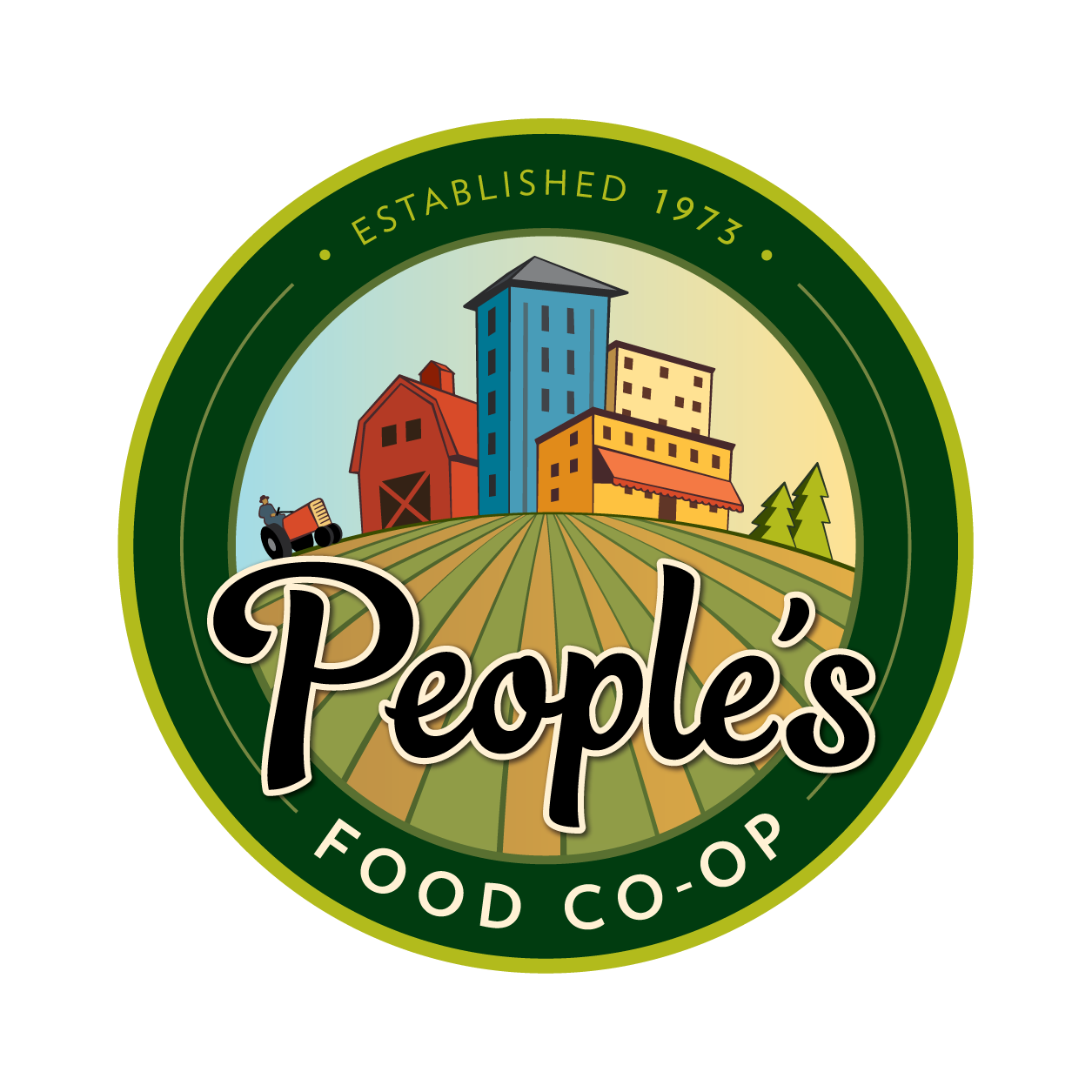Big plans from Small Family Farm
Adam and Jillian Varney of Small Family Farm have been suppliers of People’s Food Co-op since 2007. The farm brings onions, shallots, kale, and carrots—especially carrots—to the store. Small Family Farm is aptly named: Adam, Jillian, with their daughters Ayla (three), and Aliza (three months), have 21 acres, nine in vegetable production. Although they’ve been a long-time supplier to PFC, their main business is as a Community Supported Agriculture (CSA) farm.
“Because of the CSA, we have a huge variety of vegetables in production. Some funny stuff: fennel, rutabagas, kohlrabi,” Adam says. Compared to a commercial grower, who may have only corn and soybeans to master, CSA farmers are expected to learn their way around a few dozen different plants, some more difficult to grow than others.
“It’s hard to say what’s the hardest crop,” Jillian says. “There are so many factors to consider. In a wet year it’s hard to grow tomatoes, but in a dry year your celery won’t grow.”
“When we have crop failures, we find out why,” Adam says. “I could say melons are a difficult crop, but over time we’ve figured them out, and we’ve had bumper crops the last few years. Maybe sweet corn is tough, but we’re getting there; some years potatoes are trouble, but just because we don’t have a huge yield one year or another that doesn’t mean it’s a failure. All that said, the one crop I don’t get is raddichio.”
“Probably the hardest thing about the business is balancing family and farm.” Jillian notes. “Adam recently quit his job as produce coordinator at Organic Valley and now works full time on the farm. That’s a big help.”
Growth
The family recently added a second child, and Small Family Farm’s CSA business has been growing as well. “We’re looking at 300 members this year,” Jillian says, “with 100 members in the La Crosse area. We have three trucks delivering to La Crosse, Dubuque, and Madison.”
“We keep growing. We add about a half acre to production every year,” Adam says.
Growth is a dilemma for many small farmers. People who get into farming thinking they’ll make a living solely as farmers often find themselves subject to the same economies of scale that commodity crop farmers face—get big or get out. Many small organic farms are supported by off-farm income. “A 50-member CSA farm is going to struggle,” Adam says. “Growth brings efficiency to the business. We’ve added solar panels, a root cellar, cover crops and mulching...” —improvements that better the chances for success for a small, local farm.
Adam tells a story of the farm’s early years. In the beginning he used to get home from work and weed the carrots by hand for an hour or two. “It was all right. I liked it, but the first day when we got a tractor, I did the weeding in five minutes. I got down off that tractor and gave it a big kiss.”
Organic questions
Small Family Farm has used organic practices from the beginning. Jillian was convinced that organic was simply the healthier way to go about farming. Adam describes himself as a Mountain Dew-swilling, cigarette-smoking restaurant worker in the Twin Cities before they met on his brother’s farm near La Farge in 2004. “Jillian had me weeding carrots in no time,” Adam recalls. Jillian had been a farm worker for a number of years at that point. “I wanted to be a CSA farmer,” she says. “It looked like a great way to make a living and have that community with people around food.”
They did not seek organic certification for several years, however. “Did we really need to do all that government paperwork?” Jillian asks, before pointing out that in order to join the FairShare Coalition, Wisconsin’s CSA clearinghouse, a farm needs to be certified. “And FairShare is really worth doing.”
Adam adds: “We also got tired of the question ‘Are you organic? Why not?’ at every farmers’ market we worked.”
Adam prides himself on his commitment to soil improvements through organic practice. “Healthy plants don’t need a lot of pesticide and herbicide,” he’s found.
Farm qualities
In late March the snow blankets the fields and farm buildings, the trees are coated in frost. It would be misleading to think the farm isn’t busy though. In the greenhouse next summer’s first crops are putting out shoots. They inch up toward the light, each plant in its potting cell. Ayla, the three-year-old, has put all of her plantings in one small cell. It’s a mass of green.
In 2008, 2009, and last year the spring brought flooded fields. It’s not clear yet what sort of season this year will bring. A dry year will have its own challenges.
Jillian considered what qualities a person might need to succeed as a farmer—What sort of personality would seek out this work. “You need a lot of self-motivation,” she says. “There’s always more to learn, more to do. There’s a lot of research in this business. Always a new set of challenges. You work sunrise to sunset, grab a mouthful of food, collapse, and then get up and do it again.”
This story originally appeared in the May/June 2015 issue of the Co-op Shopper.


